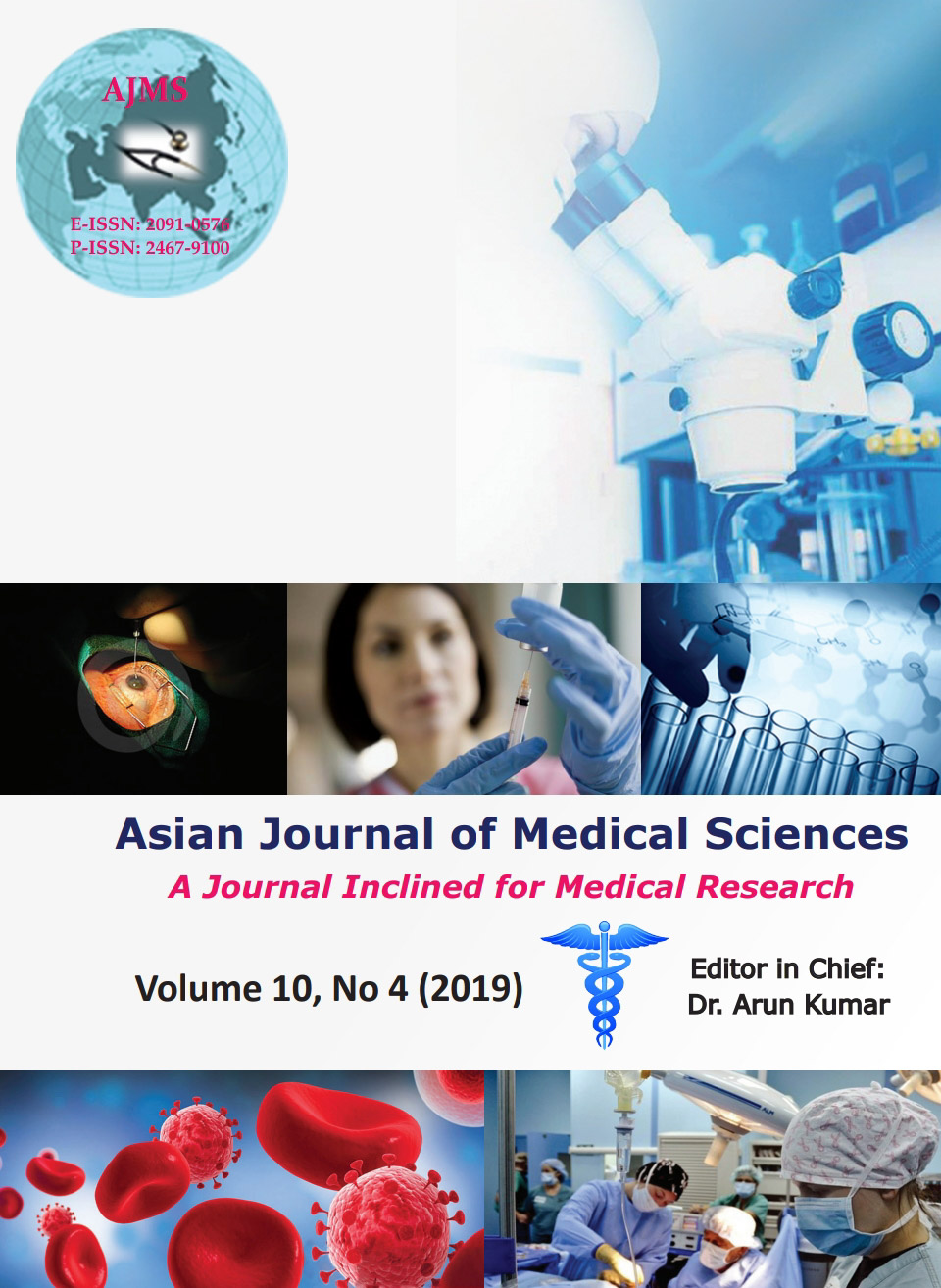Menstrual Hygiene: Practice and Challenges Among Adolescent girls of a Private School of Urban Nepal
Keywords:
MHM, Private school, Urban sectorAbstract
Background: Menstrual health hygiene management (MHM) is the basic right of every female. In developing countries like Nepal, this right is less understood or utilized. Parental and family influences and hence the societal influences plays vital role in behavioral change. In urban sector, the girls studying in the private schools are mostly from privileged background. So there is a need to observe the pattern of practices among private school girls which reflects the scenarios in privileged urban sector.
Aims and Objectives: This study is to explore the practices and challenges for menstrual health hygiene management among adolescent girls of a Private school in Urban Nepal.
Material and Methods: A cross sectional study was conducted in a private school selected purposely in the month of April and May 2019. Girls from grade seven and above were included in the study.
Results: All the girls were aware about the process of menstruation. The practices and believes were influenced by their family and facilities provided to them rather knowledge gained at school. All the participants prefer to use disposal pads and 6.3% of participants reported that they use both pads and reusable cloths. Most girls did not change the pads at school (56.2%). All the participants reported that they were hesitant to take help from teachers due to awkwardness.
Conclusions: Practices of the individuals is influenced by family beliefs. Again, adolescents spend many hours daily in schools. So strict measures to implement facility in schools for MHM should be taken.
Downloads
Downloads
Published
How to Cite
Issue
Section
License
Authors who publish with this journal agree to the following terms:
- The journal holds copyright and publishes the work under a Creative Commons CC-BY-NC license that permits use, distribution and reprduction in any medium, provided the original work is properly cited and is not used for commercial purposes. The journal should be recognised as the original publisher of this work.
- Authors are able to enter into separate, additional contractual arrangements for the non-exclusive distribution of the journal's published version of the work (e.g., post it to an institutional repository or publish it in a book), with an acknowledgement of its initial publication in this journal.
- Authors are permitted and encouraged to post their work online (e.g., in institutional repositories or on their website) prior to and during the submission process, as it can lead to productive exchanges, as well as earlier and greater citation of published work (See The Effect of Open Access).




